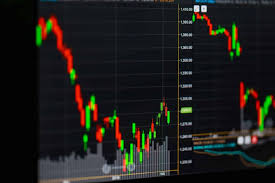No products in the cart.
Forex Currency Trading Online Your Ultimate Guide 1824558547

Forex Currency Trading Online: Your Ultimate Guide
Forex currency trading online has revolutionized the way individuals engage in trading. With the evolution of technology and the internet, trading currencies is now accessible to anyone with a computer or smartphone. The financial market operates 24 hours a day, five days a week, providing ample opportunities for traders worldwide. To maximize your trading experience, make sure to explore the forex currency trading online Best Trading Apps that suit your trading style and preferences.
Understanding Forex Trading
Forex, or foreign exchange, is the market where currencies are traded. It is the largest financial market in the world, with a daily trading volume exceeding $6 trillion. Unlike traditional stock markets, forex trading does not have a centralized exchange; it operates over-the-counter (OTC) through a network of banks, brokers, and individual traders. The primary goal in forex trading is to profit from the fluctuations in currency exchange rates.
Key Concepts in Forex Trading
Before diving into forex trading, it is crucial to understand a few key concepts:
- Pips: A pip (percentage in point) is the smallest price move in a currency pair. In most currency pairs, a pip is typically 0.0001.
- Currency Pairs: Currencies are traded in pairs (e.g., EUR/USD). The first currency is the base currency, and the second is the quote currency.
- Leverage: Forex trading allows traders to use leverage, which means they can control a larger position with a smaller amount of capital. While leverage can amplify profits, it also increases risk.
- Spreads: The spread is the difference between the buy and sell price of a currency pair. It’s essentially the cost of trading.
Choosing a Forex Broker
Choosing the right forex broker is essential for successful trading. Consider the following factors when selecting a broker:
- Regulation: Ensure the broker is regulated by a reputable authority, which provides a level of security and trust.
- Trading Platform: Evaluate the trading platform offered by the broker. It should be user-friendly and provide all necessary tools for analysis and trading.
- Fees and Spreads: Compare the fees, spreads, and commissions charged by different brokers to find the most cost-effective option.
- Customer Support: Good customer support can make a big difference. Check if the broker provides support via phone, email, or chat.
The Importance of a Trading Plan
Having a well-defined trading plan is crucial for success in forex trading. A trading plan outlines your trading goals, risk tolerance, and strategies. It should include:
- Entry and Exit Strategies: Define your criteria for entering and exiting trades, including stop-loss and take-profit levels.
- Risk Management: Decide how much of your capital you are willing to risk on each trade and incorporate strategies to manage your risk effectively.
- Performance Evaluation: Regularly review and assess your trading performance to identify areas for improvement.
Technical vs. Fundamental Analysis

Successful traders use a combination of technical and fundamental analysis to make informed trading decisions:
Technical Analysis
This approach focuses on analyzing price charts and using indicators to predict future price movements. Common tools include:
- Trend Lines: Used to identify the overall direction of the market.
- Moving Averages: Helps smooth out price data to identify trends and reversals.
- Relative Strength Index (RSI): A momentum oscillator that measures the speed and change of price movements.
Fundamental Analysis
Fundamental analysis involves evaluating the economic factors that influence currency values. Key indicators include:
- Economic Reports: Reports such as GDP, employment rates, and inflation can impact currency values.
- Central Bank Announcements: Decisions made by central banks regarding interest rates can significantly affect currency markets.
- Geopolitical Events: Political stability, trade agreements, and other geopolitical factors can cause volatility in the forex market.
Developing Trading Skills
Continuous learning is vital for success in forex trading. Here are some ways to develop your trading skills:
- Practice with a Demo Account: Most brokers offer demo accounts that allow you to practice trading without risking real money.
- Keep a Trading Journal: Document your trades, thoughts, and emotions to identify patterns and improve your decision-making process.
- Stay Updated: Follow financial news and market trends to make informed trading decisions.
- Join Trading Communities: Connect with other traders, share experiences, and learn from one another.
Common Mistakes to Avoid
New traders often make several common mistakes. Being aware of these can help you avoid pitfalls:
- Lack of a Trading Plan: Trading without a plan can lead to impulsive decisions and losses.
- Over-leveraging: Using too much leverage can quickly deplete your trading account. Always use leverage responsibly.
- Emotional Trading: Letting emotions guide your trading decisions can lead to significant losses. Stick to your plan.
Conclusion
Forex currency trading online offers exciting opportunities for those willing to learn and adapt. By understanding the key concepts, choosing the right broker, developing a solid trading plan, and continuously improving your skills, you can navigate this dynamic market successfully. Always remember to trade responsibly, manage your risks, and stay informed about market developments.

